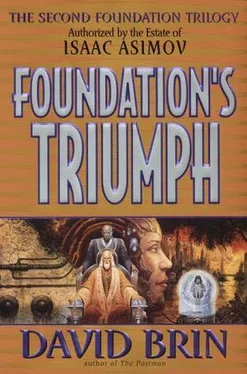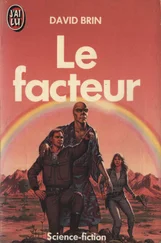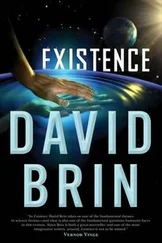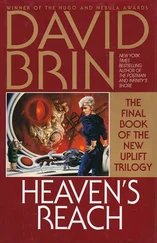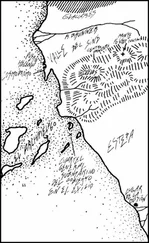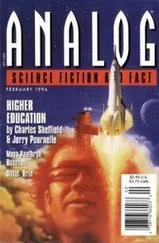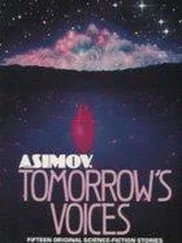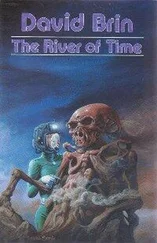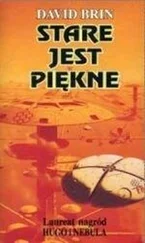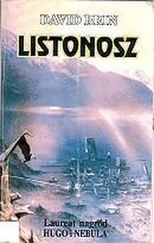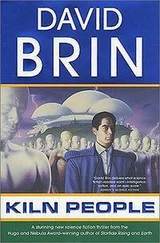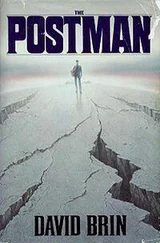David Brin - Foundation’s Triumph
Здесь есть возможность читать онлайн «David Brin - Foundation’s Triumph» весь текст электронной книги совершенно бесплатно (целиком полную версию без сокращений). В некоторых случаях можно слушать аудио, скачать через торрент в формате fb2 и присутствует краткое содержание. Год выпуска: 1999, ISBN: 1999, Издательство: Harper Prism, Жанр: Фантастика и фэнтези, на английском языке. Описание произведения, (предисловие) а так же отзывы посетителей доступны на портале библиотеки ЛибКат.
- Название:Foundation’s Triumph
- Автор:
- Издательство:Harper Prism
- Жанр:
- Год:1999
- ISBN:ISBN: 0-06-105241-8
- Рейтинг книги:4 / 5. Голосов: 1
-
Избранное:Добавить в избранное
- Отзывы:
-
Ваша оценка:
- 80
- 1
- 2
- 3
- 4
- 5
Foundation’s Triumph: краткое содержание, описание и аннотация
Предлагаем к чтению аннотацию, описание, краткое содержание или предисловие (зависит от того, что написал сам автор книги «Foundation’s Triumph»). Если вы не нашли необходимую информацию о книге — напишите в комментариях, мы постараемся отыскать её.
Foundation’s Triumph — читать онлайн бесплатно полную книгу (весь текст) целиком
Ниже представлен текст книги, разбитый по страницам. Система сохранения места последней прочитанной страницы, позволяет с удобством читать онлайн бесплатно книгу «Foundation’s Triumph», без необходимости каждый раз заново искать на чём Вы остановились. Поставьте закладку, и сможете в любой момент перейти на страницу, на которой закончили чтение.
Интервал:
Закладка:
“If I’m right, Daneel, the Encyclopedia will thrive… along with our children…and my first love. The Foundation.”
Hari Seldon lapsed into silence, a quiet reflection that R. Daneel Olivaw respected.
Soon, his granddaughter Wanda would come up this slope, a crumbling hill composed of rubble from past human civilizations, and collect him for the journey back to Trantor…and perhaps to a special reunion that he longed for.
But for the remaining moment, Hari admired a vista stretching overhead-the galactic starscape imbued with his beloved mathematics. He stared up at the radiation-flecked sky, and greeted Chaos, his old enemy.
I know you at last, he thought.
You are the tiger, who used to hunt us. You are winter’s cold. You are famine’s bitter hunger…the surprise betrayal…or the illness that struck without warning, leaving us crying out, Why?
You are every challenge humanity faced, and eventually overcame, as we grew just a little mightier and wiser with each triumph. You are the test of our confidence…our ability to persist and prevail.
I was justified in fighting you…and yet, without your opposition, humanity would be nothing, and there could never be a victory.
Chaos, he now realized, was the underlying substance out of which his equations evolved. As well as life itself.
Anyway, it would be pointless to resent it now. Soon, his molecules would join Chaos in its everlasting dance.
But up there, amid the stars, his lifelong dream still lived.
We will know. We will understand and grow beyond all limits that imprison us.
In time, we will be greater than we ever imagined possible.
Acknowledgments
Among the “Asimov experts” who offered wisdom and advice were professors Donald Kingsbury, James Gunn, and Joseph Miller, as well as Jennifer Brehl, Atilla Torkos, Alejandro Rivero, and Wei-Hwa Huang. Also providing valuable comments were Stefan Jones, Mark Rosenfelder, Steinn Sigurdsson, Joy Crisp, Ruben Krasnopolsky, G. Swenson, Sean Huang, Freddy Hansen, Michael Westover, Christian Reichardt, Melvin Leok, J. V. Post, Benjamin Freeman, Scott Martin, Robert Hurt, Anita Gould, Joseph Cook, Alberto Monteiro, R. Sayres, N. Know, A. Faykin, Michael Hochberg, Adam Blake, Jimmy Fung, and Jenny Ives. Sara Schwager and Bob Schwager were conscientious and keen-eyed copy editors. I am also grateful to Janet Asimov, John Douglas, Ralph Vicinanza, and above all to Cheryl Brigham, whose skilled reading caught many errors, whose hands substituted for mine in a crisis, and who kept life going when I felt like a hapless robot.
The quotation in Part 6, about the Gospel of Uniformity, is from Alfred North Whitehead’s book, Science and the Modern World, 1925.
Afterword
It is never easy to write in a universe that was created by another (in this case brilliant} writer. Especially when that writer is lamentably no longer around to consult by letter, or phone, or over a glass of beer. One must study his works in order to forge a new episode that has consistency with the original stories, and yet contribute fresh insights that he might have enjoyed reading. In this case, all three authors of THE SECOND FOUNDATION trilogy-Greg Bear, Gregory Benford, and I-felt compelled by the logic of Isaac Asimov’s universe to add the key element of chaos- ahorrible disease of the mind, afflicting all of humanity. Isaac left plenty of clues to this very thing, allowing our innovation to stay consistent with his earlier works. Moreover, chaos explains the major salient feature of his future history-an amnesia that debilitates quadrillions of people for hundreds of generations.
I could go on about the reasons why I wrote this new layer the way I did, but at this point I’ll forgo any further comments, except to say that I don’t see the story of Hari Seldon being quite finished! As Isaac did habitually, I laced Foundation’s Triumph with clues that others might take up someday, if they choose. Hints that culminate in two wry pages that I considered including as a denouement to this book. But instead of muddying the waters, perhaps I’ll just post them elsewhere sometime. They are not so much a part of Foundation’s Triumph as a dream of what just might happen next.
That is what’s so much fun about our ongoing dinnertable conversation about destiny. We get to poke away at the future. Explore it with experiments and fantasies. Discover mistakes to avoid. And uncover possibilities that our grandchildren may take for granted.
Timeline for the Robots and Foundation Universe
1982 C.E.Birth of Susan Calvin. Incorporation of U.S. Robots and Mechanical Men. [I, Robot]
2007 C.E.Susan Calvin begins to work for U.S. Robots. Later becomes chief robopsychologist [ I,Robot]
Early 21st CenturyA social and technical renaissance flourishes on Earth. Development of positronic robots, controlled by Three Laws of Robotics. [The Complete Robot] Hyperatomic Drive allows first successful interstellar journey. [ I,Robot]. Through an accident, Joseph Schwartz is sent on a time journey 10,000 years into the future. [Pebble in the Sky]
2064 C.E.Death of Susan Calvin. [ I,Robot] Humanity begins colonizing several planets including Aurora. The first chaos outbreaks affect civilization, breaking down confidence. On Earth, citizens cluster underground, ban robots from cities. Spacers lose empathy. Relations between Earth and Spacer worlds deteriorate. [Foundation’s Triumph]
300 years before events in The Caves of Steel The planet Solaria (the last Spacer world) settled from the planet Nexon. [The Naked Sun] Decline of the robot-dependent Spacer culture. Later, Han Fastolfe of Aurora creates the humaniform robot, R. Daneel Olivaw.
appr. 3500 C.E.Spacetown is established near New York City. R. Daneel Olivaw is assigned to work with Earthman detective Elijah Baley. [The Caves of Steel]
1 year laterElijah Baley and Daneel Olivaw pursue an investigation on Solaria. [The Naked Sun] Fastolfe becomes influential in Auroran government and supports new Earth emigration.
Opponents led by Kelden Amadiro want Spacers to terraform and populate new planets. [ The Robots of Dawn ]
2 years laterBaley carries out investigation on Aurora accompanied by Daneel Olivaw and Giskard Reventlov-a telepathic robot. Aurora lets Earth colonize new planets. Giskard suggests Earthfolk must build their new worlds completely without robots. [The Robots of Dawn]
2 years laterThe second wave of emigration from Earth begins, led by Ben Baley. First Settler planet is named Baleyworld. [Robots and Empire] Number of Settler planets grows fast. Relations between Settler and Spacer worlds grow tense. [Robots and Empire]
37 years after the events in The Caves of Steel Death of Elijah Baley on Baleyworld. [Robots and Empire]
196 years after the events in The Caves of Steel Keldon Amadiro and Levular Manamus begin planting nuclear amplifiers throughout Earth to take revenge for their earlier defeat [ Robots and Empire ]
200 years after the events in The Caves of Steel Death of Han Fastolfe. Population of Solaria vanishes. Daneel Olivaw and Giskard Reventlov formulate the Zeroth Law of Robotics, to override original Three Laws. Giskard pro vides Daneel with telepathic abilities. Amadiro and allies turn on amplifiers to make the Earth radioactive and uninhabitable. Giskard permits this for Zeroth Law reasons, in order to encourage human dispersal then dies because of First Law conflicts. [Robots and Empire] The Great Diaspora (final emigration) begins. A majority of robots split into two camps. Giskardians led by Daneel follow the new Zeroth Law religion. Calvinians think this an outrage. Robotic civil war ensues, mostly unseen by humans fleeing poisoned Earth. Meanwhile robot ships operating under Auroran programming cruise the galaxy ahead of the spreading Settlers, terraforming and preparing planets for colonization. Meme entities will later claim that this devastated existing races. Memes escape to the Galactic Core. [Foundation’s Fear, Foundation and Chaos]
Читать дальшеИнтервал:
Закладка:
Похожие книги на «Foundation’s Triumph»
Представляем Вашему вниманию похожие книги на «Foundation’s Triumph» списком для выбора. Мы отобрали схожую по названию и смыслу литературу в надежде предоставить читателям больше вариантов отыскать новые, интересные, ещё непрочитанные произведения.
Обсуждение, отзывы о книге «Foundation’s Triumph» и просто собственные мнения читателей. Оставьте ваши комментарии, напишите, что Вы думаете о произведении, его смысле или главных героях. Укажите что конкретно понравилось, а что нет, и почему Вы так считаете.
